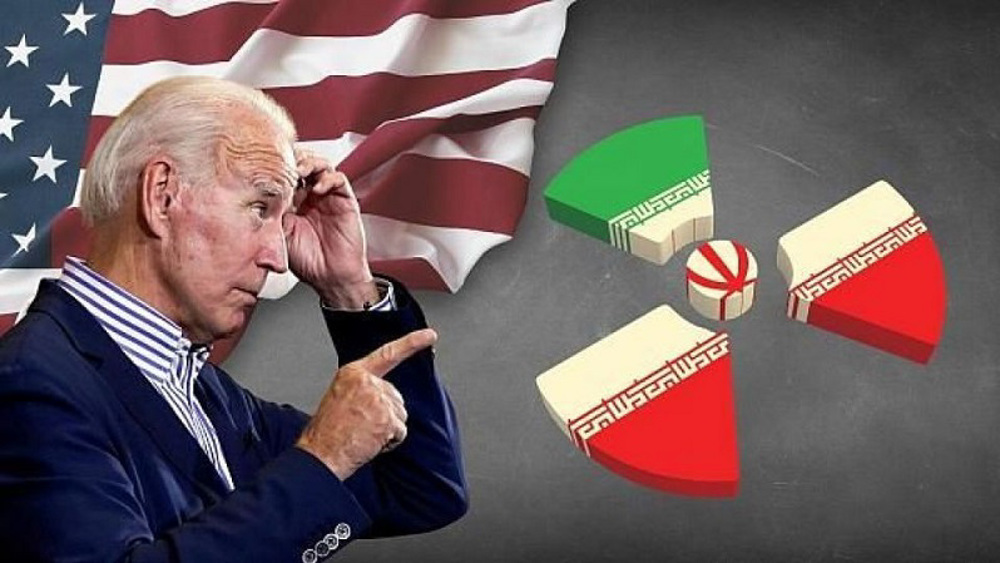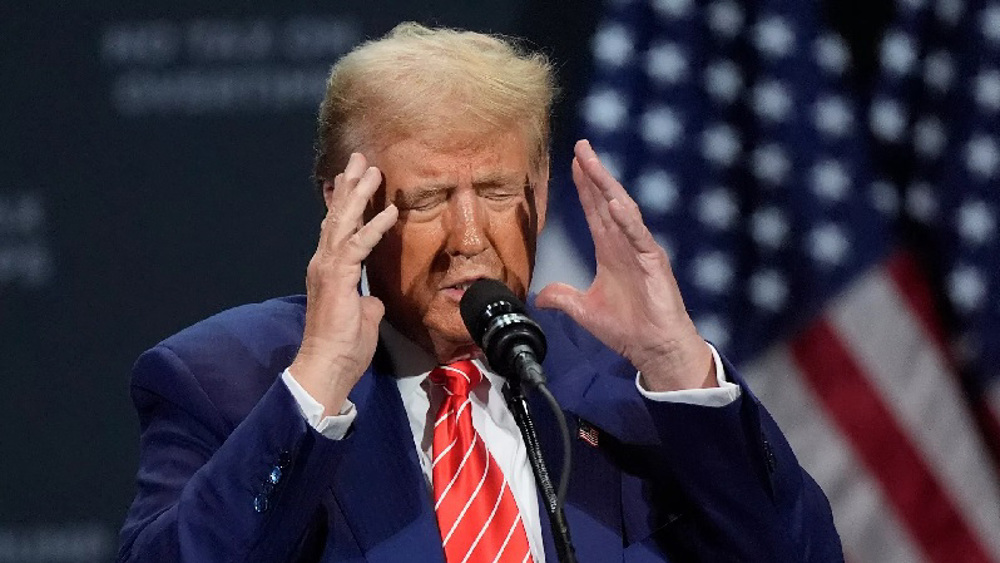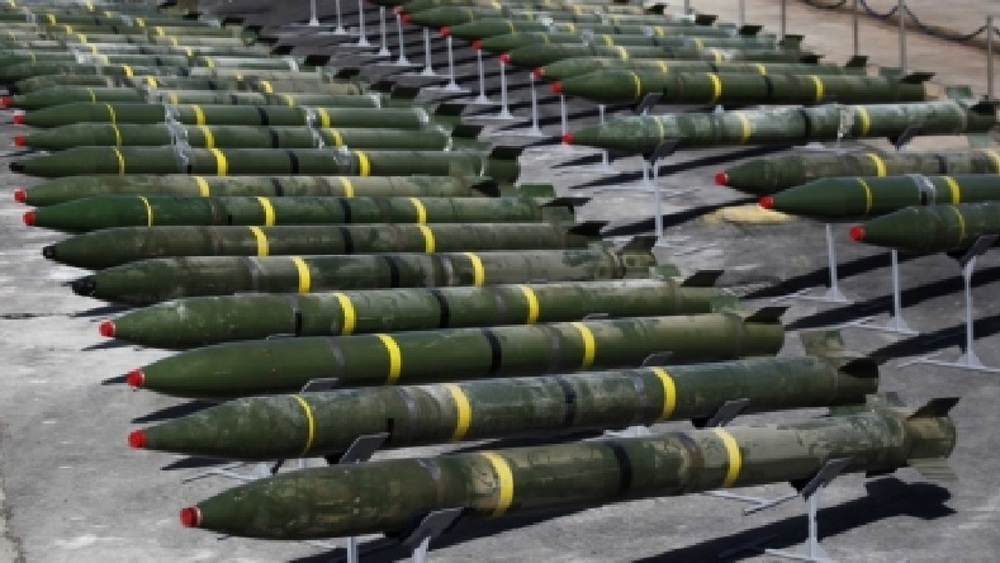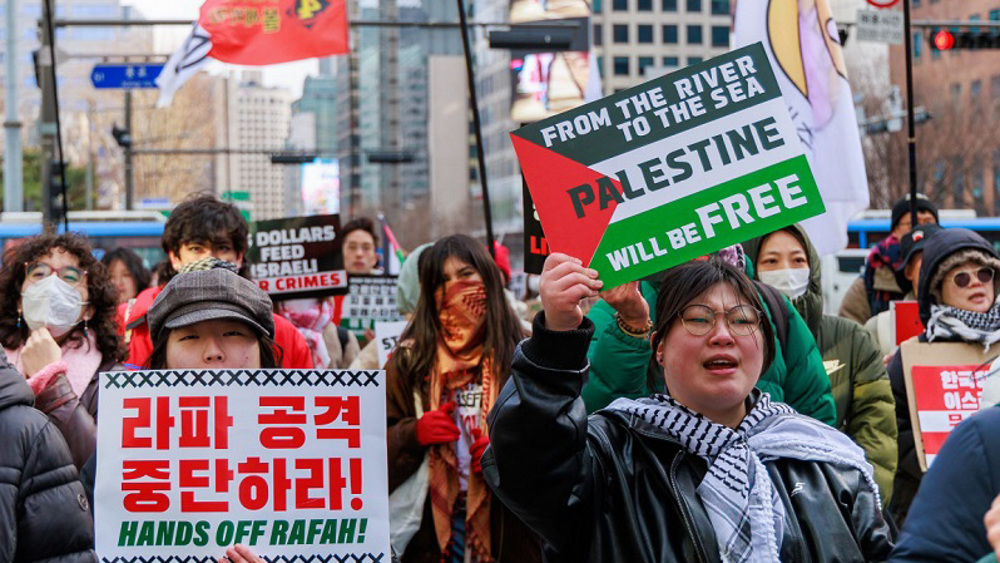Iran wants full sanctions-relief before meeting US full compliance demand
“ALL sanctions imposed, reimposed, or relabeled since Donald Trump took office in the US, must be lifted”, Iranian foreign Minister Mohammad Javad Zarif said early in the year and it has been repeated time and again by the Foreign Ministry in reference to the ongoing Vienna JCPOA talks.
Be it in one step, or step by step, the Biden Administration must give Iran full sanctions-relief. Only then, and after complete verification of sanctions removal, will Iran recommit to the JCPOA of 2015.
Flowing talks or hiccups in talks?
Vienna has been a scene of trials and efforts in opening up a string of knots that have appeared in JCPOA talks. Why the knots? Is it so hard to see past obstacles to get talks going and the JCPOA up and running?
The physical obstacles now are basically: First, Iran’s demand, when the US does not want to lift all sanctions. It wants to lift nothing more than JCPOA-related sanctions. ut what are those? According to Iran, all sanctions are JCPOA-related. Because immediately after his 2018 pullout from that deal,
Trump said he would impose the toughest sanctions ever, to get more concessions from Iran, in negotiating terms above and beyond the JCPOA, The Joint Comprehensive Plan of Action.
These stalemates can only be broken when the European Union and the United States start to recognize the Islamic Republic as a free and independent nation with its system of government. Unless they believe that and deem Iran an enemy to their economic, military, and political agenda, I’m confident that these hurdles can’t be overcome. They need to recognize the dignity, independence, and freedom of the Islamic Republic and put aside their hostile attitude toward Iran.
Mohsen Zanganeh, MP, Planning and Budget Committee
A second obstacle to Vienna talks is the demand made of Iran. The US and other Western parties to the nuclear deal demand that Iran destroy the upgraded nuclear centrifuges it installed as a continuation of its remedial measures, measures to get its JCPOA partners to reenter or recommit to the deal. Whereas Iran maintains it only has to discontinue the centrifuges, by way of the deal.
Well, closing down enrichment sites isn’t that much different from destroying the enrichment machines. If a machine remains unused, it’ll start to wear out after a while. This is the difference of the viewpoints. But, it’s evident that controlling Iran’s enrichment level is a crucial and urgent issue for them. It appears that Iran is at a point where it won’t be deceived again and that the haste it made back in 2015 which resulted in the JCPOA not being beneficial to us won’t repeat.
Kiumars Yazdanpanah, Political Analyst
It doesn’t look like there’s any easy win for Iran. The deal was signed in 2015 to curb Iran’s nuclear program which it has maintained is peaceful all along. That was in return for lifting nuclear-related economic UN sanctions off this country. The deal was between this country and the P5+1 that’s the permanent UN Security Council members.
The US backed out and left Iran with the UK, France, Russia, China and Germany. The E3 of the collection, that’s the 3 Western European powers demonstrated no power in the face of US sanctions and were almost as ineffective as the US was destructive to the deal and the Iranian economy it has promised to boost under the deal.
Iran should build up its capacities by taking other measures, like turning to nations outside the P5+1, especially considering the capacities countries like Japan, South Korea, Australia, India, and even Pakistan have as emerging powers in Asia. These countries which happen to have good relations with Iran can be asked to have indirect participation in the process of talks and can be used as leverage to convince the U-S to put aside its negative attitude toward the JCPOA. This could bring about a brighter future in the negotiating space so the problems can be resolved.
Kiumars Yazdanpanah, Political Analyst
On the anniversary of the US withdrawal from the accord Iran started inching out of its nuclear-related commitments to the JCPOA, by first enriching uranium up to 20 and then 60 percent purity levels.
That’s way beyond JCPOA-license levels of under 4 percent! It sure got the West to listen, even get into talks to revive the deal, the Vienna talks. But at what cost for this country? The talks worried Israel and radical elements in the US.
Natanz a major nuclear site off the Iranian capital Tehran was devastated by Israeli sabotage, to discourage Iran from the talks. Instead Iran repaired and enhanced Natanz with far more advanced centrifuges.
According to the deal Iran has accepted to limit the level of its uranium enrichment in return for the lifting of sanctions. If the US is going to increase sanctions esp those imposed by trump, it is the natural right of iran is to increase the level of enrichment. In fact, as authorities of Iran have stated several times, the Islamic Republic of Iran is ready to return to the JCPOA and implement its commitments accordingly. But it is not going to have happen unless the US lift all sanctions and Iran verify them.
Esfandiar Khodai, US Affairs Analyst
Israel’s direct or indirect sabotage didn’t stop at that. Next, after Palestine’s Hamas movement retaliated to Israeli strikes on Palestinians significantly on Monday May the 10th, US republicans stepped up calls on Joe Biden 13th may to end talks with Iran, in case sanctions-relief untied its hands to further support Hamas.
Biden disagreed, but in continuing to demand Iran destroy the upgraded IR-4 6 and 9 centrifuges. And that’s just for now.
The JCPOA is a new means of colonization. Today, colonizing countries no longer impose their agenda with machine guns, tanks, warplanes, and missiles, but with economic, financial, and political tools. Take the International Monetary Fund or the World Bank for example, which aims at colonizing other nations. Their tools are different: they are monetary and financial tools denominated by the Dollar. I believe the JCPOA is one of such tools but presented nicely. It’s the same concept the Leader of the Islamic Revolution has said before: velvet gloves that cover iron cast hands beneath them.
Mohsen Zanganeh, MP, Planning and Budget Committee
The US administration wants to return to the JCPOA as a first step. Next it will be demanding a JCPOA-plus or even a JCPOA-2. It’s no wonder Iran passed a law earlier on to give them a deadline by threatening to cease cooperation with the IAEA or UN nuclear watchdog. The foreign ministry negotiating team however, sees hope with the more delicate approach of talks and continued diplomacy.
Iranian parliament has pretty much alerted the US to a late May deadline for lifting sanctions off Iran and returning to the JCPOA. Get back in by then or let’s leave the JCPOA alone altogether, so to speak. But might lawmakers here have softened their tone to give Iranian negotiators in Vienna a better chance at smoothing out the platform for a JCPOA revival?
The Strategic Action Plan act passed by the parliament is, as the Leader of the Islamic Revolution said, a good law that needs to be implemented. That’s why the Parliament remains steadfast in its position regarding the law. If the May 24 deadline agreed with the IAEA Director-General is missed and the Iranian government wants to extend the time, it will be found in breach of the law. The violator would b subject to article 9 of the law which has criminalized that and defined punishments to those who object to or obstruct the legislation. The Parliament remains firm on its position regarding the matter.
Mojtaba Zonnour, Head, Iranian Parliament's National Security and Foreign Policy Committee
Iran’s Deputy Foreign Minister Seyed Abbas Araghchi, who is leading Iran’s negotiating team in Vienna, said the deal may be extended.
He did express hope however, that enough progress will be made so that there will be no need for an extension. But if needed, Iran will consider an extension at a proper time.
We enacted several clauses in the law for lifting sanctions. One clause required the government to immediately begin ramping up Iran’s nuclear activities, including installing newer-generation centrifuges and reviving the heavy water sectors in Arak, Fordow, and Natanz sites. We also defined a timeframe for our withdrawal from implementing the Additional Protocol, meaning to decrease the access and snap inspections for the IAEA. We started playing the same game that they are.
Mohsen Zanganeh, MP, Planning and Budget Committee
Given that extending the deadline might give the wrong signal and lead to misconceptions and miscalculations on the other side that Iran isn’t serious in its positions, the Parliament won’t allow an extension. This is so the enemy respects our regulation and understands that once we made a commitment, it can’t be changed. If we’re not serious about this, the other side would understandably act negligently in performing its duties. That’s why we need to stand firm in enforcing the law.
Mojtaba Zonnour, Head, Iranian Parliament's National Security and Foreign Policy Committee
The United States has accepted much of what it ought to do, but there are also some sanctions that the U.S. is not willing to lift, said Iranian Foreign Ministry Spokesman Saeed Khatibzadeh. But Iran has made it clear that these sanctions were imposed to destroy the JCPOA and prevent Iran from reaping benefits from the JCPOA and thus must be removed.
According to the JCPOA, sanctions on Iran are categorized into two groups, First are sanctions by executive order and second are sanctions by the congress act. According to this deal, the US government is committed to remove all the sanctions by the executive order. But regarding sanciotns by congress act, the US president is committed to suspend those sanctions. Iran doesn’t care what the internal policy of US is, what is important for iran is that the sanctions that have affected its economy are lifted and the barriers on the way of its trades and economic activities are lifted for good.
Esfandiar Khodai, US Affairs Analyst
It’s no secret the U.S. wants to keep some sanctions in place to use them as leverage to expand talks beyond the JCPOA; as leverage in the follow-up talks that they wish to initiate with Tehran on JCPOA timelines as well as Iran’s non-nuclear activities.
The US has put sanctions into three baskets — green, yellow, and red, depending on how clearly they are inconsistent with the deal. Green will be lifted; yellow must be negotiated; and red will stay.
A two-level relationship between Iran and the United States that would enable the two sides to directly discuss the matters in person could help clear up some misunderstandings and improve the process of the talks. Because the negotiations are being held based on distrust and while such views persist, we can’t expect desired results, even on a tactical level.
Kiumars Yazdanpanah, Political Analyst
Partial removal unacceptable
Iran rejects any categorization of sanctions to partially lift them. Be they Obama-era sanctions or trump-fancy sanctions, be they recognized as JCPOA-related or unrelated. Although Iran maintains they are all JCPOA-related and the US seems to agree deep down.
Iran is insistent on some of its internal policies. They’re also insisting that Iran abandons and readjusts the policies. It doesn’t appear that the two would mix well or the JCPOA would be able to work to Iran’s benefit, albeit in a minimal way. Iran wants all sanctions removed, but many sanctions aren’t JCPOA-related. Even if 50 percent of the JCPOA-related sanctions are suspended, and not lifted, it would be a positive development for Iran.
Kiumars Yazdanpanah, Political Analyst
Anyhow it was the US that pulled out of the deal, disregarding UNSC resolution 2231 which the JCPOA rests on. In other words it was the US that caused the standoff with a mess of sanctions imposed later TO sabotage the JCPOA. And even Joe Biden for months refused to lift any sanctions before Iran takes the first step to recommitting. US pressures have only been backfiring.
Here’s a point. Practice of the law can only be so different from what the law says. And the way the US and allies have boldly gone about the deal, as though it was never meant to lift sanctions to begin with.
This causes concern that maybe the JCPOA was never intended as a means to lift the illegible sanctions on Iran; only to temporarily suspend them.
First, it’s not the removal of all sanctions. We had this ambiguity with our colleagues in the Foreign Ministry. They said according to the JCPOA, all sanctions would be lifted without any preconditions on the day the deal was signed. But we said it won’t happen for two reasons. One is the nature of the imperialist system that won’t allow it, and the second is the text that was being signed. The JCPOA text has tied the lifting of sanctions to tens of preconditions. If you consider how the sanctions are planned to be removed in the JCPOA, which doesn’t include all anti-Iran sanctions, you’ll notice that practically nothing will happen.
Mohsen Zanganeh, MP, Planning and Budget Committee
Earlier on in the talks, Abbas Araqchi said Iran requires no road map to restore the deal.
“In our view, there is no step-by-step plan. We only have a final step that the US needs to take to lift the sanctions it has imposed, reimposed, or relabelled during the past four years. We will verify and then Iran will return to its commitments.”
Abbas Araqchi, Deputy Foreign Minister, Islamic Republic of Iran
That’s not all. Iran’s wants a guarantee from the US and its Western European partners that sanctions will not be reimposed as soon as the deal gets going.
Once it rejoins the JCPOA the US will have the power, as a member of the accord, to trigger the snapback mechanism. That way all sanctions would flood Iran once again in one fell swoop. But Joe Biden seems too level-headed to act outside accepted norms of diplomacy to unnecessarily cause a breach of trust.
Is lifting all sanctions vital?
So what if high-up individuals remain on the US list of persons of interest; to sacrifice themselves for the country to see oil and banking and other sanctions lifted to see its economy flourish?
Some of these sanctions are imposed on people who’re active in large companies which constitute non-governmental relations between Iran and other nations in trade, commerce, export of goods, and import and export of raw materials, and so on.
Sanctioning these people has put additional pressure on Iran. These aren’t serious sanctions and don’t have that much legal burden on either side.
If these sanctions are lifted, talks on other aspects of the JCPOA can be facilitated which in turn, can gain the trust of Tehran so the Iranian Parliament would accept to extend the deadlines it has set so the government can have the time for talks.
Kiumars Yazdanpanah, Political Analyst
Could there be any legal loopholes for individual US states to separately impose sanctions on Iran, if the US returns to the deal?
Such a thing doesn’t exist in the legal structure of the US. It’s also incompatible with international law. It’s not like any state can arbitrarily do whatever it wants. It’s only up to the Security Council and the President of the United States.
Kiumars Yazdanpanah, Political Analyst
There is no structure for imposing sanctions by US states separately and there are few precedents for such sanctions in US history. Countries and companies do not take sanctions by separate states as seriously as they take sanctions by the federal government of the US.
Esfandiar Khodai, US Affairs Analyst
So how have details on the ground been looking in Vienna since the fourth round of talks began on Friday the 7th of May?
In dismissing Republican calls to cease nuclear talks due to Hamas rockets, US Secretary of State Antony Blinken on made a good point on the same day May the 13th. It was the straightforward answer. The sort of common sense comment Iran has been making all along, to fall on deaf ears.
“I don’t have anything to offer on whether or not there is Iranian involvement in what is taking place [in Gaza]… But when it comes to any of the malign activities that Iran may or may not engage in… that only underscores the importance that we do everything we can to ensure that Iran never acquires a nuclear weapon.”
Antony Blinken, US Secretary of State
In other words, the US wish to curb Iran’s power, allow talks to go on in Vienna to see if it is possible return to mutual compliance with the JCPOA.
Hezbollah attacks Israeli forces after Lebanese homes blown up
World leaders, states hail ICC arrest warrants for Netanyahu, Gallant
MP: US accountable for possible Israeli 'foolishness' to attack Iraq
VIDEO | Israeli policies strangle Palestinian agriculture, economy
Iran's president offers condolences to Pakistan over terrorist attack
Canada’s Yukon town council at standstill over refusing oath to King Charles
Yemen's Houthi calls for jihad to protect Palestine against Israel
VIDEO | Internal rifts within Israel
















 This makes it easy to access the Press TV website
This makes it easy to access the Press TV website